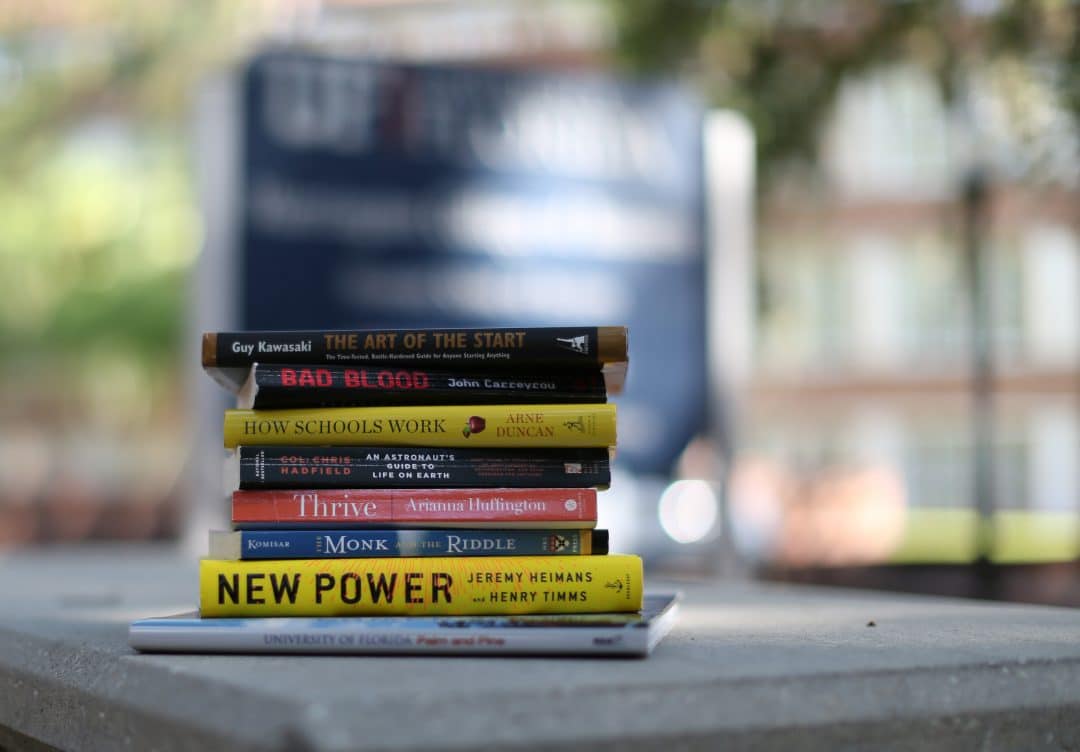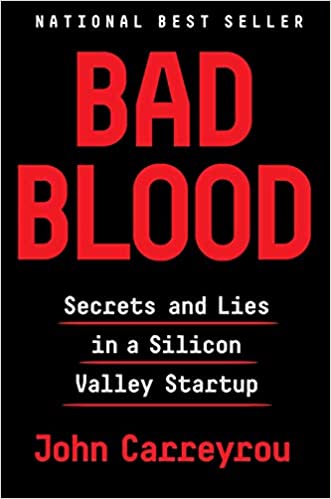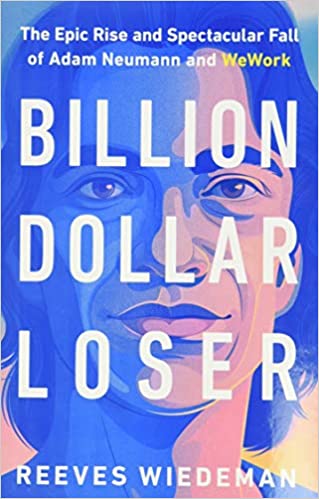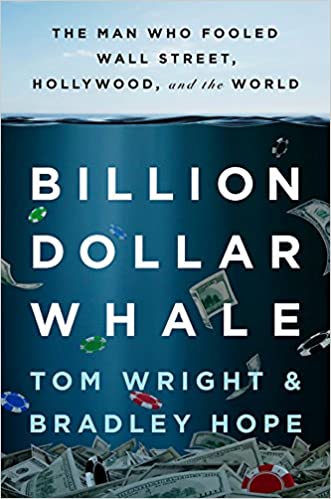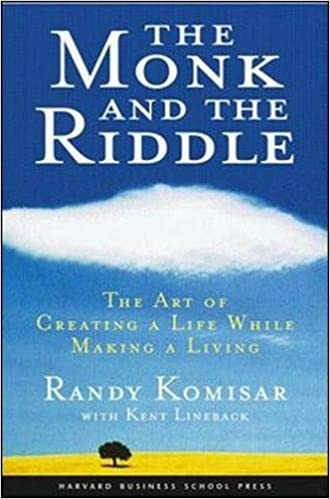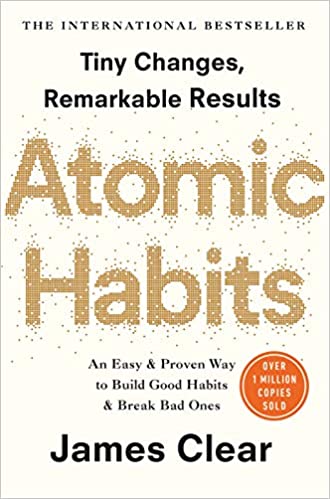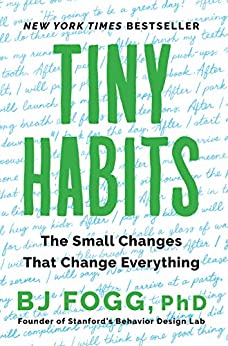Your 2021 summer reading list
Faculty and staff across the Warrington College of Business selected their recommendations for books to read this summer. See their selections and what you’ll get out of reading each in the list below.
By John Carreyrou
“Three of the best business books of recent years, in my humble opinion, have been about disasters and frauds: ‘Bad Blood’ by John Carreyrou about Elizabeth Holmes and Theranos,’Billion Dollar Loser’ by Reeves Wiedeman about Adam Neumann and WeWork, and ‘Billion Dollar Whale’ by Tom Wright and Bradley Hope about Jho Low and Timothy Leissman and 1MDB scandal. These are cautionary tales. Their central characters were amazingly adept at influencing investors to part with their money to finance foolish things.”
– Brian Gendreau, Clinical Professor and Richardson Fellow, Eugene F. Brigham Finance, Insurance and Real Estate Department
By Reeves Wiedeman
By Tom Wright and Bradley Hope
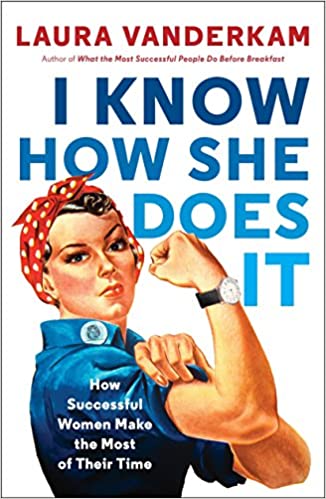
By Laura Vanderkam
“Women in the business world will benefit tremendously from reading this practical, data-driven book. I love it because it offers a hopeful view of ‘fitting it all in.’ I refer to it often in my personal life and recommend it routinely to individuals balancing families and a big career.”
– Carly Escue, Director, Graduate Business Career Services
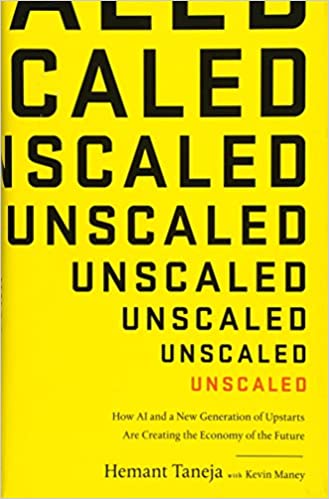
By Hemant Teneja
Book Description: An innovative trend combining technology with economics is unraveling behemoth industries — including corporations, banks, farms, media conglomerates, energy systems, governments, and schools-that have long dominated business and society. Size and scale have become a liability. A new generation of upstarts is using artificial intelligence to automate tasks that once required expensive investment, and “renting” technology platforms to build businesses for hyper-focused markets, enabling them to grow big without the bloat of giant organizations.
In Unscaled, venture capitalist Hemant Taneja explains how the unscaled phenomenon allowed Warby Parker to cheaply and easily start a small company, build a better product, and become a global competitor in no time, upending entrenched eyewear giant Luxottica. It similarly enabled Stripe to take on established payment processors throughout the world, and Livongo to help diabetics control their disease while simultaneously cutting the cost of treatment. The unscaled economy is remaking massive, deeply rooted industries and opening up fantastic possibilities for entrepreneurs, imaginative companies, and resourceful individuals. It can be the model for solving some of the world’s greatest problems, including climate change and soaring health-care costs, but will also unleash new challenges that today’s leaders must address.
– Jamie Kraft, Director, Entrepreneurship & Innovation Center
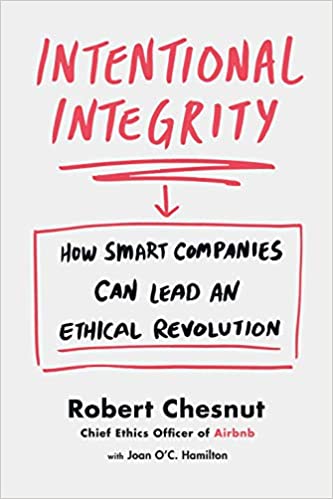
By Robert Chestnut
Book Description: Silicon Valley expert Robert Chesnut shows that companies that do not think seriously about a crucial element of corporate culture―integrity―are destined to fail. Defining integrity is difficult. Once understood as “telling the truth and keeping your word,” it was about following not just the letter but the spirit of the law. The data privacy abuses, sexual misconduct, and greedy behavior at some of the world’s highest profile companies have contributed not only to major financial setbacks but also to an erosion of trust in the institutions on which our communities depend. As our workplaces are becoming more diverse, global, and connected, integrity matters more than ever. It requires leadership from the top, but it also requires that everyone in the company have a shared sense of what integrity means in their workplace and a strong, empowered voice to put that integrity into practice.
– Brian Ray, Director, Poe Business Ethics Center
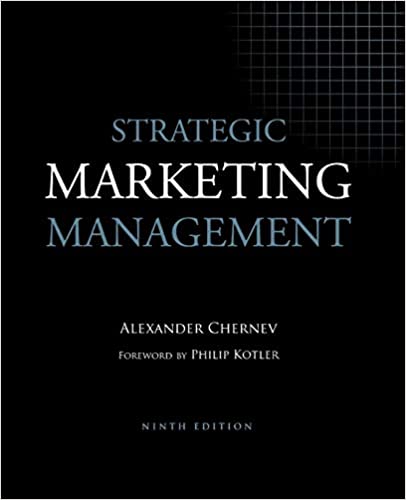
By Alexander Chernev
Book Description: Strategic Marketing Management (9th Edition) outlines the essentials of marketing theory and offers a structured approach to identifying, understanding, and solving marketing problems. This book presents a comprehensive framework for developing sound marketing strategies that guide business decisions involving product and service design, branding, pricing, sales promotion, communication, and distribution. The concepts, principles, and frameworks advanced in this book apply to a wide range of organizations, from startups to established enterprises, from packaged-goods manufacturers to value-added service providers, from nonprofit entities to for-profit corporations.
“I think this would be a great resource to students looking to have a deeper understanding of marketing processes and problem-solving.”
– Morgan Marvin, Director of Marketing, Warrington College of Business
By Randy Komisar
Book Description: What would you be willing to do for the rest of your life…? It’s a question most of us consider only hypothetically-opting instead to “do what we have to do” to earn a living. But in the critically acclaimed bestseller “The Monk and the Riddle”, entrepreneurial sage Randy Komisar asks us to answer it for real. The book’s timeless advice – to make work pay not just in cash, but in experience, satisfaction, and joy – will be embraced by anyone who wants success to come not just from what they do, but from who they are. At once a fictional tale of Komisar’s encounters with a would-be entrepreneur and a personal account of how Komisar found meaning not in work’s rewards but in work itself, the book illustrates what’s wrong with the mainstream thinking that we should sacrifice our lives to make a living.
– Parker Van Hart, Director, Entrepreneurship Programs, Entrepreneurship & Innovation Center
By Daniel Kahneman
“[By reading this book, you will learn about] how the human brain thinks. Kahneman is a Nobel Prize Winner in Economics.”
– Larry DiMatteo, Huber Hurst Professor of Contract Law, Department of Management

By Gus Lee
Book Description: Scandals in business and politics are the lead stories on the national news. Aside from public outrage, not much has changed. This is because the power to change does not come from information, but from modeling and practicing the learnable behaviors of courage. Many of us tolerate unethical acts, emotional abuse, and routine moral weakness. At work, we look away from character failings, tolerate ethical compromises, avoid conflict, and feel stuck in moral gridlock. Yet studies show that ethical businesses profit more in the long term and that morally courageous leaders inspire their organizations toward sustained success. In other words, integrity and character drive profits. In Courage, Gus Lee captures the essential component of leadership in measurable behaviors.
– Brian Ray, Director, Poe Business Ethics Center
By James Clear
“James Clear provides all you need to understand why and how you should practice habits that will empower you to reach your goals. From fitness, to grades, to landing that first job, reading this book and putting his techniques into practice will help you make the most of your time and energy to enjoy your semesters stress-free.”
– Dennis DiPasquale, Lecturer, Department of Marketing
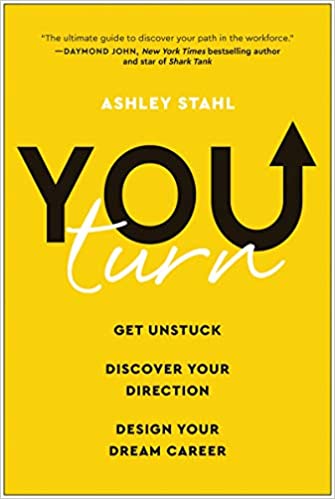
By Ashely Stahl
“Easy-to-read career guidance that is applicable to people at any point in their professional careers! You Turn focuses on identifying your personal core skill sets and interests and using that knowledge to inform your career direction. The author weaves stories of her own professional journey alongside helpful activities and reflection exercises that allow you to really apply the insights. Read with an open mind and you will find realize that you truly can pursue a living doing anything you’d like, as long as you take the right approach for YOU. Current students and recent grads, pay close attention to the section that covers networking and job hunting for some great hacks and myth-busting.”
– Lauren Stefan, Associate Director of International Programs, Heavener School of Business
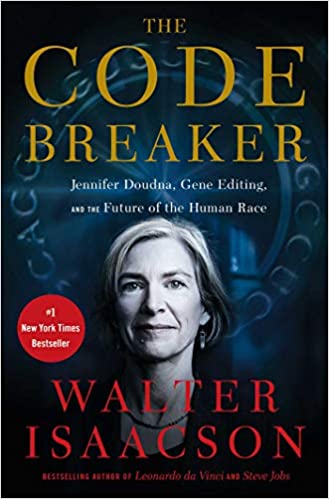
By Walter Isaacson
“The Code Breaker provides great lessons in innovation, the challenges of turning discoveries into businesses, breaking through biases, and rising up when people need you. The book follows Jennifer Doudna, who won a Nobel Prize in chemistry. It tells of how she was inspired as a child to study science when she read a book on the discovery of DNA. She broke from conventional wisdom and studied RNA, which put her on the path to discover CRISPR, a tool that is used to edit DNA. She battled other scientists to see who could publish first and receive credit for the discoveries, and for patents that could turn discoveries into businesses. When COVID-19 struck, she rallied scientists to set aside their competitions and use their discoveries to battle the virus.”
– Mark Jamison, Director and Gunter Professor, Public Utility Research Center
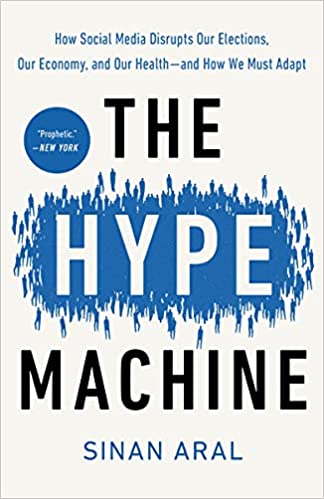
By Sinan Aral
“As an ancient Chinese proverb says, ‘numerous mouths can melt metal, and accumulated slander can dissolve bones.’ Today, social media platforms spread and repeat fake news faster and farther than ever before. This wonderful book examines how misinformation spreads and shapes the way we think.”
– Liangfei Qiu, PricewaterhouseCoopers Associate Professor, Department of Information Systems and Operations Management
By B.J. Fogg
“We are what we repeatedly do. Excellence, then, is not an act but a habit. 🙂
Tiny Habits describes:
How to effectively install good habits using motivation, ability, and prompts.
How to effectively delete bad habits using motivation, ability, and prompts.
How to troubleshoot why a behavior or habit is occurring both good and bad.
The Fogg Behavioral Model B=MAP. Behavior happens when motivation + ability + prompt converges at the same moment.
No behavior happens without a prompt. Prompts can be person, context, or action.
The importance of celebration in behavioral design. Hint B.J. Fogg would teach this skill first.
Tiny habit recipe for creating behaviors. After I (ANCHOR) I will (HABIT) then I will (CELEBRATE).
People change best by feeling good about themselves not by feeling bad.
Tiny changes are lasting changes.”
– Adrian Gritz, Application Developer Analyst III, Warrington Technology Solutions
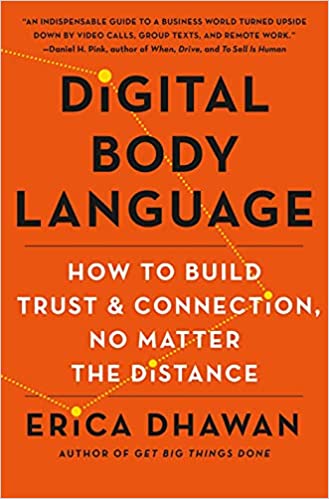
By Erica Dhawan
“A large percentage of what we communicate is nonverbal. The exact percentage is regularly revised and disputed, but you know it’s true if you’ve ever been in a meeting where the words are nice and well-chosen, but you sense bad news is coming.
You also know how hard it can be to read or express tone in an email if you’ve ever stressed out over a ‘Thanks.’ or if you felt the need to add exclamation points to be sure everyone knows you really mean it, ‘Thank you!!!’.
Coming off of over a year of working and studying from home, and looking ahead to a future where hybrid offices are likely to be the norm, you might appreciate a guide to expressing yourself accurately “no matter the distance”. If so, “Digital Body Language” is the book for you. Erica Dhawan’s helpful guide offers tips for communicating things like trust, engagement, excitement, or urgency via email, text, and messaging platforms where you can’t rely on body language to ensure you are sending the right message.”
– Anthony Coman, Lecturer, Management Communication Center


